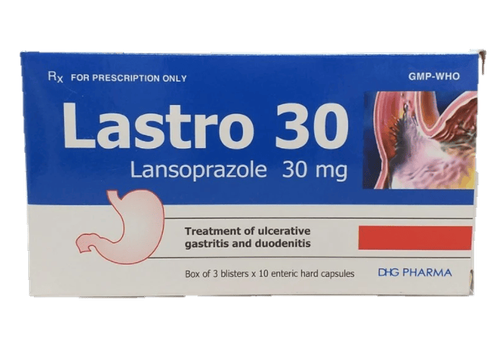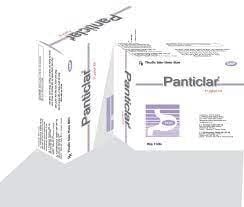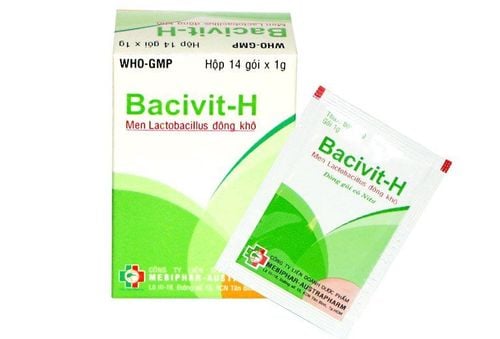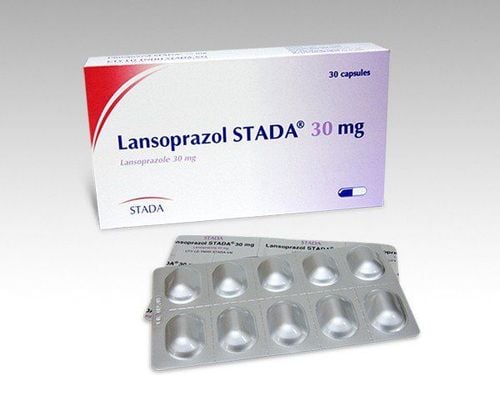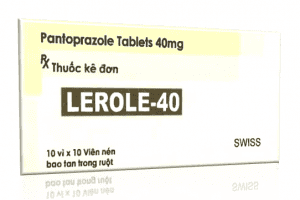This is an automatically translated article.
Platra is a pharmaceutical product commonly indicated for the treatment of a number of gastrointestinal diseases such as gastroesophageal reflux disease, duodenal ulcer, gastric ulcer. Before using the drug, the patient should know the following information about the drug to ensure its safety when using and achieve the best effect.1. What is Platra drug?
Platra Pills by Acme Formulation Manufacturer Pvt. Ltd. India's pharmaceutical product belongs to the group of gastrointestinal drugs, the list of antacids, anti-reflux and anti-ulcer drugs with the main active ingredient is Pantoprazole sodium 40mg content. The drug is indicated in a number of gastrointestinal diseases such as gastroesophageal reflux disease, gastric ulcer, duodenal ulcer.Platra drug is prepared in the form of enteric coated tablets and packed in boxes of 3 blisters x 10 tablets.
2. Uses of the drug Platra
2.1. Effect of drug ingredients
Pantoprazole is a selective proton pump inhibitor due to its selective action on the wall of gastric cells, so it works faster and more effectively than other drugs. The healing rate (healing of ulcers) in the stomach can reach 95% after 8 weeks of taking the drug.The drug has little effect on pepsin secretion, gastric juice volume, intragastric factor and gastric contractility.
2.2. Point
Platra drug is often indicated to treat a number of diseases occurring in the gastrointestinal tract such as:Gastroesophageal reflux. Stomach ulcer, duodenal ulcer. Acid reflux disease and reflux esophagitis. In combination with antibiotics to eliminate Helicobacter pylori (H.p) infection.
2.3. Contraindications
The drug is not used (contraindicated) for cases of hypersensitivity to pantoprazole or to the excipients of the drug, or other benzimidazole derivatives such as esomeprazole, lansoprazole, omeprazole and rabeprazole,...Besides In addition, the drug is also contraindicated for children under 18 years of age.
3. Usage - dosage
Platra is a drug used only by prescription and sold only when prescribed by a doctor, so patients need to use the drug according to the doctor's instructions and instructions.Dosage:
Dosage of Platra drug will depend on each treatment purpose and the patient's health status, disease progression, specifically:
Duodenal ulcer: Take 40mg/time/day and for 2 days - 4 weeks. To eliminate Helicobacter pylori, it is necessary to combine pantoprazol with 2 antibiotics for 1 week treatment. Gastroesophageal reflux: Take 20-40mg once daily for 4 weeks, may be increased to 8 weeks by your doctor if deemed necessary. In patients with esophageal ulcers that do not heal after 8 weeks of treatment, treatment can be extended up to 16 weeks. Maintenance treatment: Take 20-40mg per day. Combination antibiotic treatment for H.p.: The treatment regimen includes: Pantoprazole 40mg, twice a day (morning and evening), clarithromycin 500mg twice a day and amoxicillin 1g twice a day or metronidazol 400mg, twice a day. Note: This dose is for reference only, and the specific dose depends on the patient's condition, as well as the progression of the disease. Therefore, to get the right dose, you need to consult a specialist.
How to use:
The drug is prepared in the form of enteric coated tablets should be taken orally. Drink 1 time a day in the morning after breakfast to avoid stomach irritation. Should take the drug as a whole, do not break, crush or disperse the drug before taking it, it will reduce the effect of the drug. Medicines should be taken with cooled boiled water or purified filtered water, should not be taken with alcohol, beer or coffee, carbonated drinks, bottled soft drinks, fruit juices, etc. may affect to drug use.
4. Side effects
When using Platra, users may experience undesirable effects (ADRs) such as:Common: Dizziness, headache, fatigue, urticaria, skin rash, dry mouth, nausea, vomiting , abdominal pain, flatulence, constipation, diarrhea, arthralgia, myalgia Uncommon: Asthenia, dizziness, lightheadedness, insomnia, pruritus, increased liver enzymes. How to handle ADR:
When experiencing side effects of the drug, the patient should stop using it and notify the doctor for advice on appropriate treatment or go to the nearest medical center for treatment. mind.
5. Drug interactions
Pantoprazole alters the absorption of Ketoconazole. Pantoprazole is metabolised in the liver by the cytochrome P450 enzyme system. Therefore, the drug has the potential to interact with drugs that are metabolized by the cytochrome P450 enzyme system. Clinically, there have been no significant interactions between pantoprazol and the following drugs: caffeine, carbamazepine, diazepam, digoxin, diclofenac, ethanol, metoprolol, glibenclamide, nifedipine, theophylline, phenytoin, warfarin and oral contraceptives. Pantoprazole has not been shown to interact with antacids when used concomitantly. There was also no interaction of pantoprazol with antibiotics used in combination (amoxicillin, clarithromycin) for the treatment of Helicobacter pylori. Better yet, to avoid drug interactions, patients should inform the treating doctor about the drugs they are taking for the most appropriate advice, indications, and adjustments.6. Notes and cautions
In order to use Platra drug to achieve the best and safest treatment effect, patients need to be cautious and pay attention to the following issues:The drug is only used when prescribed and prescribed by a doctor. Therefore, it is important to take the medicine exactly as prescribed by the doctor. Do not arbitrarily change the dose or method of taking the medicine without consulting your doctor. Long-term use of the drug and high doses may slightly increase the risk of fractures of the wrist, hip, and spine. Therefore, if the patient is at risk of osteoporosis, it is necessary to supplement with calcium and vitamin D, as well as need to be cared for according to instructions. Hypomagnesaemia has been reported in patients treated with proton pump inhibitors (including pantoprazole) for at least 1 year. Therefore, it is necessary to measure magnesium levels in patients requiring long-term treatment or taking proton pump inhibitors with drugs that cause hypomagnesaemia. Before administering pantoprazole and other proton pump inhibitors to patients with peptic ulcer disease, the possibility of gastric cancer must be excluded because the drug may delay the diagnosis of cancer. Pantoprazole should be used with caution in patients with liver disease, and should be avoided in patients with cirrhosis or severe liver failure. Use with caution in patients with renal failure and the elderly. Pregnant women should not take the drug, unless it is absolutely necessary to use it as prescribed by a qualified doctor. The drug can pass into breast milk, so women who are breast-feeding should not take it or if they must, they should stop breastfeeding to ensure it is safe for their baby. Do not use the drug for drivers, operating machinery because the drug can cause side effects of dizziness and visual disturbances affecting the ability to drive and operate machines.




